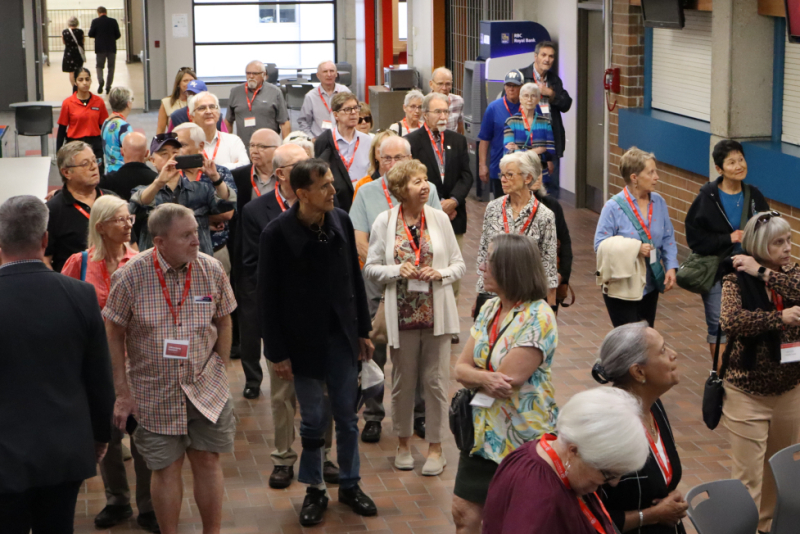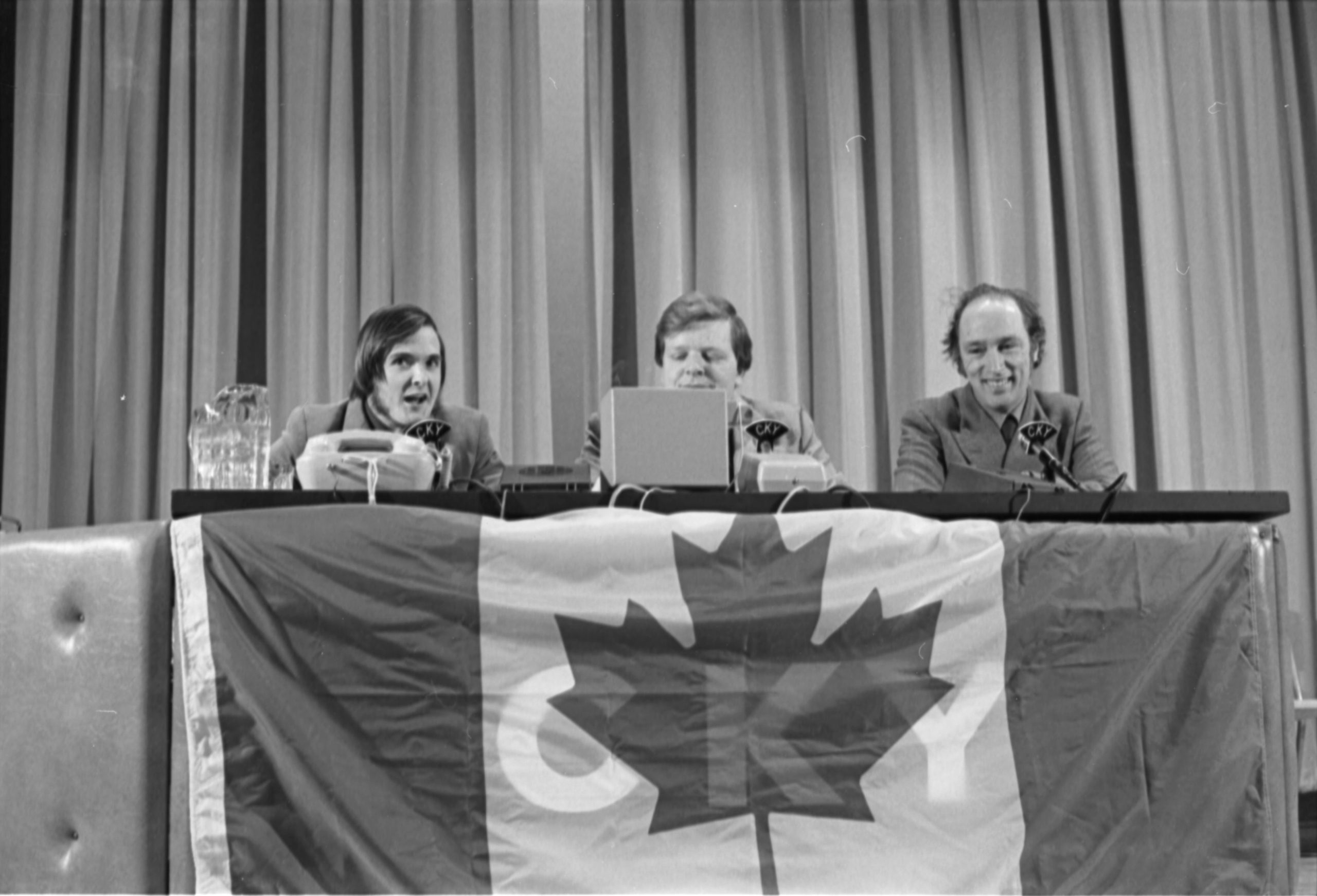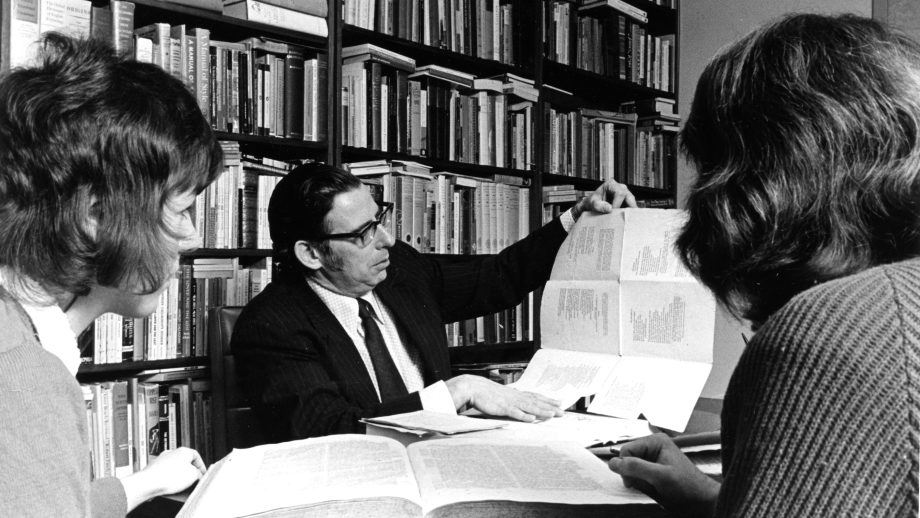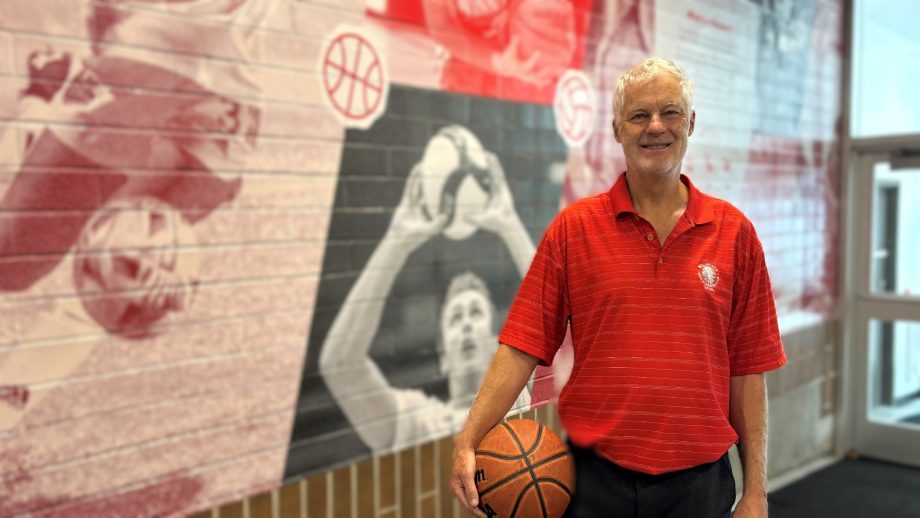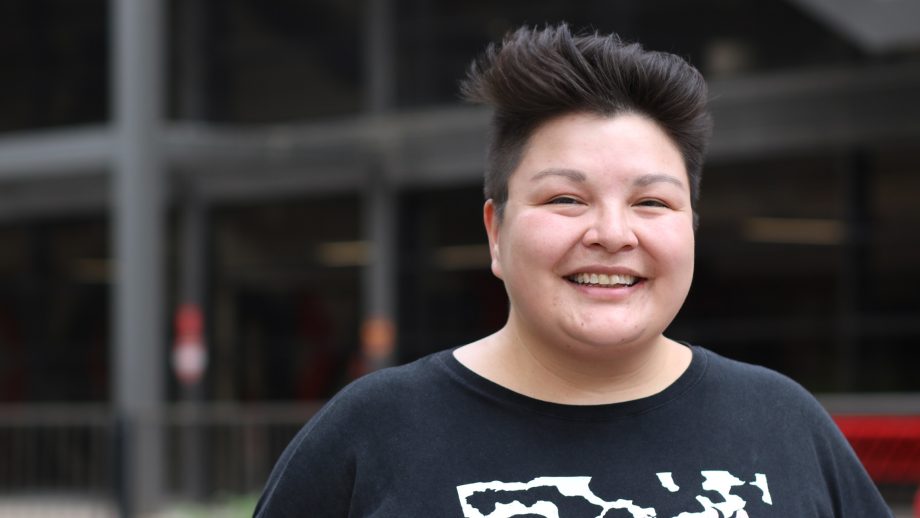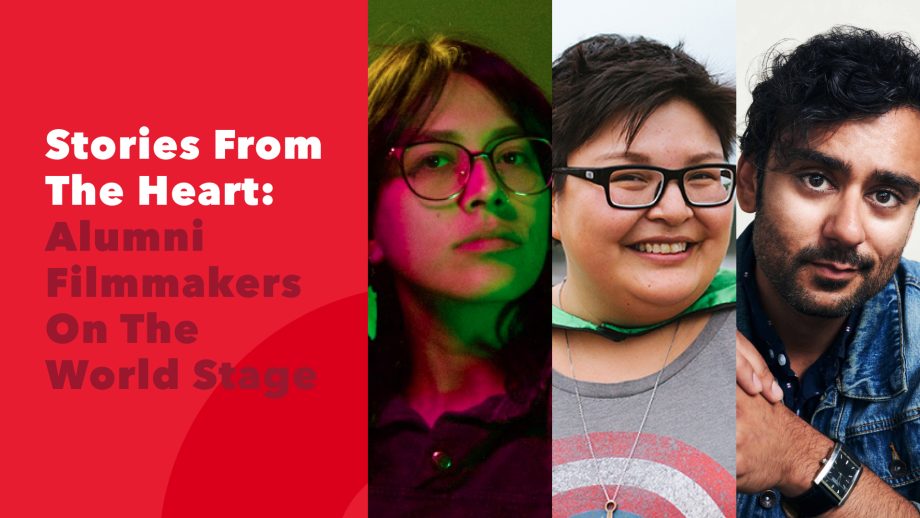From September 23 to 27, Homecoming Week was filled with reconnections, engaging conversations, and memories from way back when. With seven events running through the week, alumni, friends, and family were invited to step foot on campus and pay homage to their alma mater.
The Wesmen Alumni Nights for basketball and volleyball saw former national champions connecting with up-and-coming players. The homecoming panel discussion sparked conversations about sharing stories through film. And the reunion luncheon and walking tour provided an opportunity for those from the classes 1969-1974 to reconnect and reminisce about The University of Winnipeg over 50 years ago.
Remembering Winnipeg and UWinnipeg during the late 1960s
One alum who made the trek from Vancouver, BC to reconnect with his former classmates was Don Lidstone, K.C. (BA 74). Don attended UWinnipeg from 1970-1974 and fondly remembered his experience as a political science student in the early ’70s.
“It was an exciting time on campus and in the city,” said Don. “In many ways, The University of Winnipeg was much more politically progressive than any other universities.”
During the early ’70s, Winnipeg was going through a rapid period of growth, including the amalgamation of the cities to officially become the City of Winnipeg in 1972. Don said UWinnipeg’s history is known to be inextricably entwined with the history of Winnipeg and Manitoba. “With the campus being very urbane, the history of Winnipeg and Manitoba fed into everything that was going on campus. The University of Winnipeg has evolved in the context of Winnipeg’s evolution,” said Don.
“Winnipeg is famous for a lot of history of ideology and politicking and governance being part and parcel of academia,” recalled Don. “UWinnipeg was just a growing burgeoning college and high school back in the day. Very quickly it became, on the national scene, a very well-known ideological fountain of publications and ideas and politics.”
Don said there were a lot of things about the university that were shockingly surprising for its size. “The University was able to attract speakers and events that were far more interesting and effective for members of the student body than what was happening at a lot of the more famous Canadian institutions.”
Don was able to see performances by BB King, a young Fred Penner, and hear speeches from politicians such as Pierre Elliot Trudeau, Joe Clark, and Robert Stanfield. “David Suzuki also spoke in one of the most amazing presentations I’ve ever heard,” said Don. “He was very young at that point, but that speech was life-changing for a lot of people in the audience.”
“This was not only impressive, but it spoke to the energy and the networking and connections the university had at both the student level and professionally,” said Don.
A connected faculty
Don remembered student life to be exciting. “From the first day when one arrived, they were enveloped with all sorts of opportunities to become part of the fabric of the community, to become directly involved in things that matter, things that you believed in or cared about.”
During the ’70s, Don ran into Draft Dodgers from the US military, and card-carrying members of the Marxist-Leninist party. What’s more, Don felt the faculty treated the students like equals. “When I think of some of the professors and faculty members we had, despite being a small student body, we had a really strong faculty,” said Don. “We had people who were up for the Nobel Prize in science, people who were published in the most advanced journals. We attracted a brilliant faculty who were advanced, had reputations, and were very effective at teaching.”
“I had a professor who said, ‘I woke up this morning and had to decide if I wanted to run for Premier or not,’” said Don. “Another one who said, ‘I heard from the Black Panthers this morning’.”
Don said these experiences and connections created a foundation for people who had to have integrity in their career and their life going forward.
UWSA involvement led to long career in law
During his final year of studies, Don became heavily involved in student governance as the UWSA President. With Don at the helm, 1973-74 became a pivotal year for the UWSA in creating legacies that are still around to this day.
“As a team we fought to get rid of the private bookstore which was marking up books 40 per cent,” said Don. “It was quite a battle with the private bookstore and the university. But we ended up with a university bookstore that is still there to this day; providing an amazing service at a reasonable price.”
“We also started a day care centre with two day care workers and 12 children,” said Don. “This was an essential thing because we had so many single parent students at the university.”
Other major projects that Don and his council developed included a student-run food co-op which reduced the cost of produce for students by 60-70 per cent and making headway on updating the UWSA constitution.
It was Don’s involvement with the UWSA that was instrumental in solidifying his path to become a lawyer. “I was going to probably become a lawyer,” said Don. “But as Student Council President, we ran into four major legal issues which required us to engage lawyers,” said Don. “It wasn’t just fascinating, but it was important to have that expertise and experience, to handle these critical issues. This was a big selling point for the practice of law.”
Don, who is now a member of the Kings Counsel, has been practicing law for over four decades. Focused on municipal law in the MASH sector, his law firm, Lidstone and Company – Barristers and Solicitors has evolved to include 26 lawyers, two articling students and 12 support staff. He has offices in Vancouver and Calgary and is opening an office in Victoria.
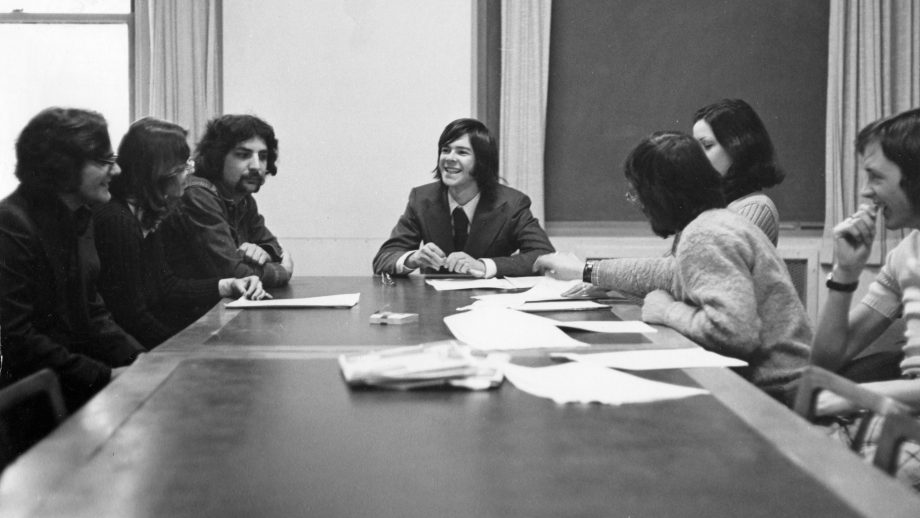
Special Collections SC-4-2 84-288 “Student Executive,” 1974. [Don Lidstone sitting at the head of table]
Reuniting with former classmates and friends
“Having reunions, alumni and keeping the fabric of the community together is extremely valuable,” said Don. “It helps to feed back donations to the universities, and it also provides a foundation for other people to consider going to The University of Winnipeg.”
Despite living three provinces over, Don still refers to Winnipeg as Friendly Manitoba. “They are the most friendly people in Canada,” said Don. Don remains plugged into Winnipeg, returning two to three times a year to visit. “My friends and colleagues are still in Winnipeg.”
“The University and its alumni association organized a memorable reunion this year,” said Don. He appreciated the opportunities to reconnect with friends and colleagues. “The fascinating tour of the campus with the UWinnipeg architect, and visits to archival displays, made the reunion a great success.”
“It is gratifying to see how the facilities and services have expanded in relation to the significant growth of the student population, and how the University has become accessible to the community and particularly the neighbourhood,” said Don.

